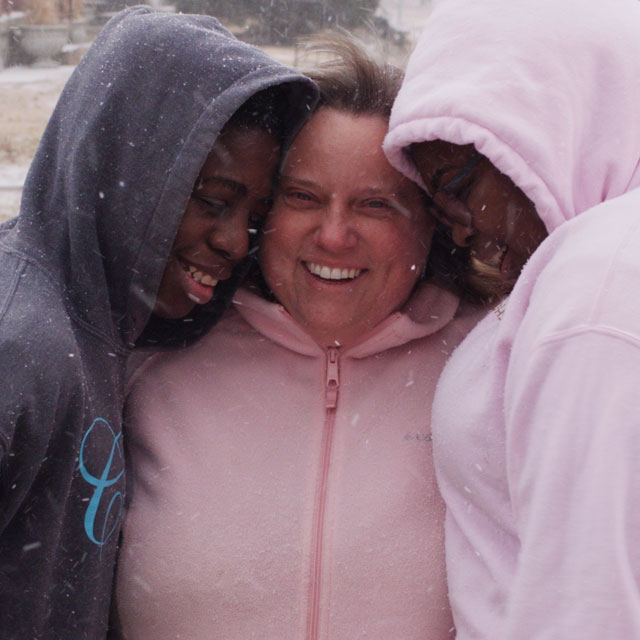Think Big for Kids Recipient Challenges Traditional Therapy with Innovative Approach to Developmental Trauma
FamilyForward wants to transform how we understand and treat the long-term effects of childhood trauma. “There is so much talk today about trauma and many well-meaning organizations going in a lot of directions,” says Karen Nolte, Chief Executive Officer of FamilyForward. “Our region has an opportunity to lead the conversation around complex trauma and its impact on each child’s development in order to individualize treatment and move vulnerable children in the direction of hope.”
What Nolte is referring to is the Neurosequential Model of Therapeutics (NMT), an evidence-based assessment tool for guiding behavioral intervention developed by Dr. Bruce Perry, a leading researcher and authority on children’s mental health and neurodevelopment. NMT demonstrated the direct correlation between a child’s history and his or her brain function. In February 2018, FamilyForward opened a new Developmental Trauma Center focused on addressing the effects of child abuse, neglect and crisis using NMT – the first and only center in the region applying the model – and sharing knowledge gained from their work with the wider community. Nolte says a recent $100,000 YouthBridge Think Big for Kids grant will help bring greater awareness around a methodology that is changing lives and is an overarching philosophy elsewhere in the world.
“The beauty of this model is that it guides the creation of a specific treatment plan for each child and her family,” says Nolte. “Understanding that every child’s journey is different – and thus the impact on their functioning is different and should be treated as such – is a principle that we can teach the community, and this funding greatly strengthens our ability to do so.”
These principles aren’t new to FamilyForward. The product of a merger between Family Resource Center and Children’s Home Society of Missouri in 2017, FamilyForward brings 170 years of combined experience providing innovative solutions for children experiencing emotional and behavioral difficulties due to trauma or developmental disabilities. Incorporating NMT, FamilyForward clinicians utilize a comprehensive approach that benefits the child directly and helps all caregivers understand the child’s current functioning while implementing individualized therapeutic activities to meet their needs (i.e. movement, music, art therapy, play therapy, and when appropriate, cognitive-behavioral interventions).
For adoptive mother, Chris Lloyd, the team at FamilyForward provided the tools she and her children needed to manage the effects of abuse and neglect they’d suffered as infants. “My kids are empowered because they understand now why they react as they do to certain situations and what to do about it,” says Lloyd, who adopted her children – Kiki, 17, and her biological brother, Oliver, 16 – when they were both three months old. The infants had been severely malnourished and physically abused, and while Lloyd showered them with unconditional love, both children would eventually show the signs of physical and emotional trauma – especially Kiki.
Acting out in class, startling easily, hoarding food, Kiki fought for control in every situation. Lloyd and the behavioral therapists that worked with Kiki were at a loss, until learning of FamilyForward’s approach. After completing a developmentally informed assessment using NMT, Kiki’s treatment team recognized that early trauma impacted important regulatory and sensory processes. By understanding that Kiki needed help managing sensory information and regulating emotions, the team could better target where the interventions could be most effective and generate the most potential change for Kiki and her mother. Lloyd says Kiki was involved throughout the process, empowering her daughter to control her path and ask for help when she needs it. Brother Oliver now is working through his own process. “They’re growing into strong, independent individuals, and I credit FamilyForward and the NMT model with giving all of us clarity and courage when much of our previous efforts had failed,” says Lloyd.
